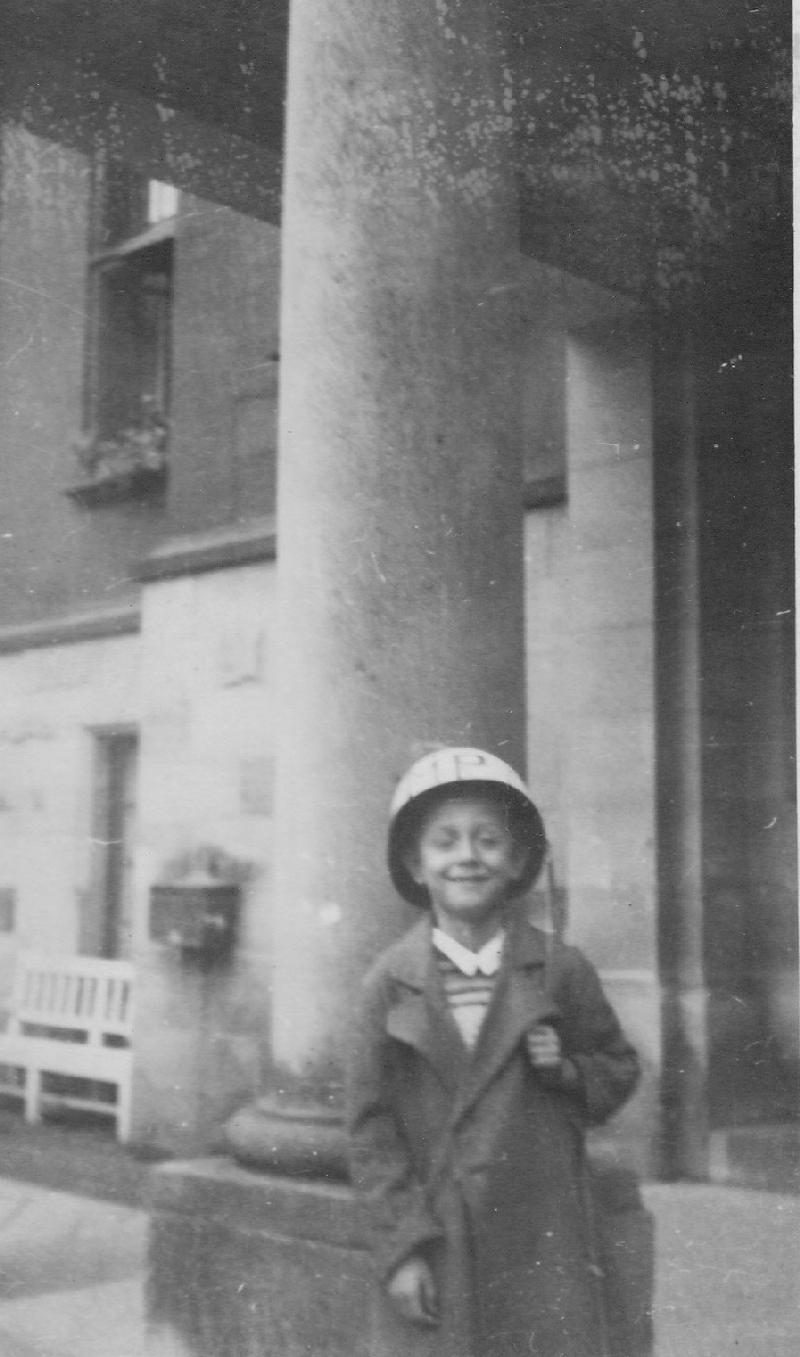
World War II Aftermath in Germany: Allied Soldier Attitudes

Figure 1.--The American military issued no-fraternization orders, but without Soviet-style draconian regulations, this was not going to work. Verile GIs had both money anf scarce goods (Cigarettes, chocolate, abnd nylons). And attractgive Frusleins were cold, hungary, and lonely. A real kicker here. The German kids quickly worked out that no only did they not have to fear the Americans, but there was chewing gum and chocolate to be had. And unlike the adults for which many GIs harbored ill feelings, the kids were hard to resist. Here aGerman boy Wearing a U.S. Military Police helmet in late-1945. He is posing for a GI he has made friends with. You do not see scenes like this from the Soviet zone.
|
|
Soldiers from five different countries smashed into the Reich to finally destroy the Third Reich. All had very negative attitudes about the Germans. Most had lost buddies and comrads as they fought their way across Europe from different directiins toward the Reich. The Red Army soldiers moving west found trerrible attrocities commited against civilians even before they reached German labor and concentration camps. They were thus primed with a smoldering hatred of the Germans well before they crossed the boundaries of the Reich. This was less true of the Western Allies moving east. But the occasional attriocities in France became more pronounced in Belgium during the Bulfe offensive. And then after crossing the RHine, American, British, Canadian, and French soldiers began liberaring concentration camps with terrible scenes. There was this little sympathy for the Germans as the occupation began. In the Soviet occupation zone this dioes not change. The barbarity of the NAZI oocupation and the massive death toll was ot something that could be soon forgotten. Stalin permitted several days during whivh the Red Army soldiers were unleased on the German people. Men were shot for virtually no reason or forced to watch their wives and daughtwrs be raped. Many men and women committed suiside. And even after this outburst of violience, very strict rules about fratenization prevented any bonds of friendship from developing. Soldiers from the Western Allies behavec differently. That is not to say there was no rapes or stealing, but it was at a much lower level and not officially santioned. The French having endured 4 years of German occupation wre the mkost severe with the Germans. The Americans were the least severe. American GIs had no need to forcibly rape women, they had foodm chocolates, cigarettes, anf nylons to buy the affections of hungary Frauleins. The Americans also had rules against fraternization. But without draconian Soviet-style enforcement, it was impossible to keep hrathly GIs and lonely, hungary German women apart. A real kicker here. The German kids quickly worked out that no only did they not have to fear the Americans, but there was chewing gum and chocolate to be had. And unlike the adults for which many GIs harbored ill feelings, the kids were hard to resist. And unlike the Soviets, British, and French, large numbers of GIs were of German ancestry. Thus the kids looked just like the kids back home. Slowly the American GIs and German peopke began to weave a friendship, and one which was firmly cemented during the Berlin Air Lift and would prove to be the primary block to Soviet Agression as the Cold War developed. The Cold War begn and ended in Berlin. And Stalin essentially lost it by the brutal policies he adopted in the Soviet occupation zone. The policies were not substantoally different than elsewhre in the Soviet Empire, but in Germany the Western Allies occupied half the country. Of course matter pf policy were made at high levels, but the personal relationships forced at the infiovidual evels sgould not be ignored.
HBC

Navigate the Boys' Historical Clothing Web Site:
[Return to Main World War II German aftermath page]
[Return to Main World War II German page]
[Return to Main World War II page]
[Biographies]
[Campaigns]
[Children]
[Countries]
[Deciding factors]
[Diplomacy]
[Geo-political crisis]
[Economics]
[Home front]
[Intelligence]
[POWs]
[Resistance]
[Race]
[Refugees]
[Technology]
[Bibliographies]
[Contributions]
[FAQs]
[Images]
[Links]
[Registration]
[Tools]
[Return to Main World War II page]
[Return to Main war essay page]
Created: 6:16 AM 2/26/2013
Last updated: 6:16 AM 2/26/2013



